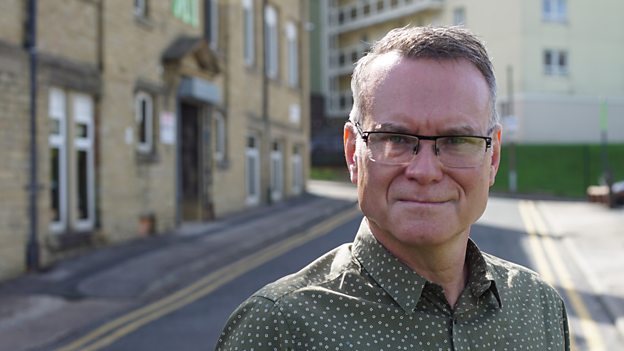Debt Saviours: Why for Christians Against Poverty, clients are never just a number
One of the most extraordinarily successful social interventions of the last few decades is also perhaps the most Christian – and in an age when household debt is an increasing curse for many families, its rise could not have been more timely.
Bradford-based Christians Against Poverty has grown from one man's vision 22 years ago to be a nationally-recognised force for good.

CAP is the subject of a BBC documentary on Friday that follows founder John Kirkby, counsellors and clients as they grapple with the huge problems faced by people who've been overwhelmed by debt.
The Debt Saviours, directed by Philip Wood, lets the participants speak for themselves. Some of them have sad stories to tell – like Holly, who has been in debt all her young life and lives alone. She can barely afford to heat her home and is desperate for a change in circumstances.
Another, Ronnie, was on remand for over two years before he was found not guilty. When he was released from jail he found himself homeless and in debt. He now lives alone in a bedsit, suffers from mental health issues and thinks life in jail was better.

How does CAP help people like this? Its staff and volunteers – all 6,000 of them – believe everyone matters. At head office, cut-out figures representing clients are strung on lines across the room. Each of them has a name. Applause breaks out as news comes through that another client is debt-free.
There are frequent clips of counsellors praying, with each other or with clients. It's all standard stuff for evangelicals, as is the lively worship that's also depicted, but it would probably seem odd to the unchurched masses – if not rather threatening. Towards the end of the film, Kirkby is challenged on his motivations. Is debt relief just an opportunity for evangelism?
Not really, his answer seems to be. 'I see helping the poor as a great opportunity to meet people where they are and – yeah, certainly let them know that somebody cares for them, and should they want to know more about faith and some of the deeper issues in life that can help them, then it's done well, it's done respectfully, it's done with sincerity and honesty.'
He continues: 'I think helping anybody from a faith perspective is a good thing. As is helping anybody from a non-faith perspective. Anybody helping anybody, it's a good thing.'
Why not just go into people's homes, 'offer them the service that you offer, in terms of the practical service, and then walk away, do no mention Jesus, do not mention the Bible, not pass on literature, not invite them to discover your faith, and then let them discover it for themselves?'
It's not an issue, Kirkby says: there are tens of thousands of people who say they aren't interested, but 'who would just get great help, and that's absolutely fine, that's a win'. But they aren't going to hide who they are – 'people expect us to be Christian', because of their name.
By an extraordinary coincidence, this week also sees the publication of a report on CAP by the London School of Economics (LSE). It examined 12,618 records of people helped by CAP between 2013 and 2016 as well as CAP's 2017 annual survey of clients and 3,167 CAP Job Club and Fresh Start records. It also carried out 120 interviews with clients, staff and volunteers.
LSE's team, led by Prof Anne Power, found that every pound spent by the charity on poverty relief leads to almost four times as much benefit to society.
Nominally, this equates to £6,493 per household receiving debt help from CAP.
Those, however, are just numbers – and the title of the report, Never just a number, deliberately references CAP's core philosophy.
In her preface to the report, Prof Power instances several 'striking' aspects to CAP's work, including: a philosophy of going the extra mile in the belief that this will make the difference; taking on extreme cases, often referred by other agencies and charities; adopting a holistic approach, including helping in many practical and direct ways; and relying on active church members to support, inspire and motivate clients. Over half its clients escape debt, which 'seems high given the severe nature of problems people present', she says.
Of the role played by faith, she says: 'CAP is required to make explicit the faith that underpins its mission but avoiding any sense of requiring clients to share this faith is critical. However, because churches in general are long established community anchors, they are widely trusted to be on the side of helping communities, even among people who are sceptical of their purpose.'
And because faith underpins everything counsellors do, 'their job often goes far beyond a paid role'.
What about The Debt Saviours' concern that counselling is a Trojan horse for proselytism? It's a perfectly fair question, but the LSE report says: 'Clients praise CAP's non-judgmental approach and appreciate the practical help based on kindness. They are struck by the fact that it is free.' It also notes that for 50 centre managers interviewed, 'The main stated motive for doing the work is helping people in need.'
Knocking the church is a fashionable pursuit nowadays. But CAP is one of many organisations that's based on a classical understanding of what the church is called to do: the work of Christ, in the name of Christ. At the beginning of The Debt Saviours, John Kirkby reads Jesus' words from Luke 4: 18-19 beginning 'The Spirit of the Lord is upon me', with its proclamation of good news to the poor.
So far, so good.
'The Debt Saviours' is on BBC2 on Friday, October 5, at 9 pm.











